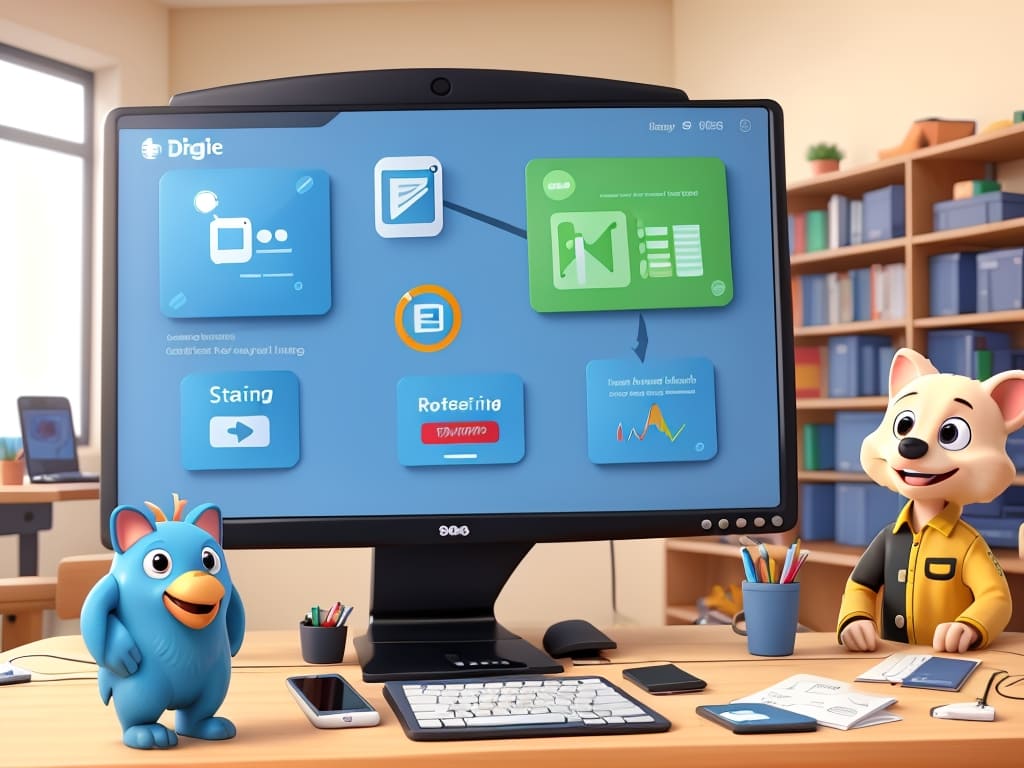-
Table of Contents
- Revolutionize Your Business in 2024: Ecommerce Website Development
- The Importance of Ecommerce Websites in Today’s Business Landscape
- The Evolution of Ecommerce Website Development
- The Future of Ecommerce Website Development
- 1. Mobile Commerce (mCommerce)
- 2. Artificial Intelligence (AI) and Machine Learning
- 3. Augmented Reality (AR) and Virtual Reality (VR)
- 4. Voice Commerce
- How Ecommerce Website Development Can Revolutionize Your Business
- 1. Increased Sales and Revenue
- 2. Cost-Effective Solution
- 3. Improved Customer Experience
- 4. Data-Driven Insights
- 5. Competitive Advantage
- Frequently Asked Questions (FAQs)
- 1. How long does it take to develop an ecommerce website?
- 2. How much does it cost to develop an ecommerce website?
- 3. Do I need a mobile app for my ecommerce website?
- 4. How can I ensure the security of my ecommerce website?
- Conclusion
“Take your business to the next level in 2024 with our cutting-edge ecommerce website development services. Revolutionize your online presence and drive sales like never before. Visit infinitidigitech.com to learn more and get started today!”
Revolutionize Your Business in 2024: Ecommerce Website Development
The world of business is constantly evolving, and with the rise of technology, it is changing at an unprecedented pace. In the past decade, we have seen a significant shift towards online shopping, with more and more consumers turning to ecommerce websites for their purchasing needs. This trend is only expected to continue in the coming years, making it crucial for businesses to adapt and revolutionize their approach to Ecommerce Website development.
The Importance of Ecommerce Websites in Today’s Business Landscape
Ecommerce websites have become an integral part of the modern business landscape, and for good reason. With the increasing popularity of online shopping, having a strong online presence has become essential for businesses of all sizes. Here are some key reasons why ecommerce websites are crucial for businesses in 2024:
- Global Reach: Ecommerce websites allow businesses to reach a global audience, breaking down geographical barriers and expanding their customer base.
- 24/7 Availability: Unlike traditional brick-and-mortar stores, ecommerce websites are open 24/7, allowing customers to shop at their convenience.
- Cost-Effective: Ecommerce websites eliminate the need for physical storefronts, reducing overhead costs and making it a more cost-effective option for businesses.
- Personalization: With the help of data analytics and customer insights, ecommerce websites can offer a personalized shopping experience, increasing customer satisfaction and loyalty.
- Convenience: Online shopping offers convenience to customers, allowing them to browse and purchase products from the comfort of their own homes.
These are just a few of the many benefits that ecommerce websites offer to businesses. As we move towards a more digital world, having a strong online presence through an ecommerce website is no longer a luxury, but a necessity.
The Evolution of Ecommerce Website Development
The concept of ecommerce is not new, but the way it is being implemented and utilized has evolved significantly over the years. In the early days, ecommerce websites were simple and basic, with limited features and functionality. However, with advancements in technology and changing consumer behavior, ecommerce website development has also evolved to keep up with the demands of the market.
In the past, businesses would rely on web developers to create their ecommerce websites from scratch, which was a time-consuming and expensive process. However, with the emergence of ecommerce platforms and content management systems (CMS), businesses can now create and manage their own ecommerce websites with ease.
These platforms offer a wide range of features and customization options, making it easier for businesses to create a unique and user-friendly online shopping experience for their customers. Some popular ecommerce platforms include Shopify, WooCommerce, Magento, and BigCommerce.
The Future of Ecommerce Website Development
As we look towards the future, it is clear that ecommerce website development will continue to evolve and adapt to the changing needs of businesses and consumers. Here are some key trends that are expected to shape the future of ecommerce website development:
1. Mobile Commerce (mCommerce)
With the increasing use of smartphones and mobile devices, it is no surprise that mobile commerce is on the rise. In fact, it is estimated that by 2024, mobile commerce will account for over 70% of all ecommerce sales. This means that businesses need to ensure that their ecommerce websites are optimized for mobile devices to provide a seamless shopping experience for their customers.
Some key features of a mobile-friendly ecommerce website include responsive design, easy navigation, and fast loading times. Additionally, businesses can also consider developing a mobile app to further enhance the mobile shopping experience for their customers.
2. Artificial Intelligence (AI) and Machine Learning
Artificial intelligence and machine learning are already being used in various industries, and ecommerce is no exception. These technologies can be used to analyze customer data and behavior, allowing businesses to offer personalized product recommendations and targeted marketing campaigns.
AI and machine learning can also be used to improve the overall user experience on ecommerce websites. For example, chatbots can be used to provide instant customer support, while virtual assistants can help customers find products and make purchases.
3. Augmented Reality (AR) and Virtual Reality (VR)
Augmented reality and virtual reality have the potential to revolutionize the way we shop online. These technologies allow customers to visualize products in a real-world setting, giving them a better understanding of the product and its features.
For example, a furniture company can use AR to allow customers to see how a piece of furniture would look in their home before making a purchase. This not only enhances the shopping experience but also reduces the chances of returns and increases customer satisfaction.
4. Voice Commerce
Voice commerce, also known as vCommerce, is another trend that is expected to gain traction in the coming years. With the rise of virtual assistants like Amazon’s Alexa and Google Assistant, more and more customers are using voice commands to make purchases.
Businesses can optimize their ecommerce websites for voice search by using natural language and long-tail keywords. They can also integrate their ecommerce platform with virtual assistants to allow customers to make purchases through voice commands.
How Ecommerce Website Development Can Revolutionize Your Business
Now that we have discussed the importance and future of ecommerce website development, let’s take a look at how it can revolutionize your business in 2024:
1. Increased Sales and Revenue
Having an ecommerce website can significantly increase your sales and revenue. With a global reach and 24/7 availability, you can attract more customers and generate more sales. Additionally, with the help of personalized product recommendations and targeted marketing campaigns, you can also increase the average order value and customer lifetime value.
2. Cost-Effective Solution
As mentioned earlier, ecommerce websites are a cost-effective solution for businesses. They eliminate the need for physical storefronts, reducing overhead costs such as rent, utilities, and maintenance. Additionally, with the availability of ecommerce platforms and CMS, businesses can create and manage their own websites without the need for expensive web developers.
3. Improved Customer Experience
Ecommerce websites allow businesses to provide a seamless and personalized shopping experience to their customers. With features like product recommendations, easy navigation, and multiple payment options, you can enhance the overall customer experience and increase customer satisfaction and loyalty.
4. Data-Driven Insights
Ecommerce websites provide businesses with valuable data and insights that can be used to make informed decisions. With the help of analytics tools, businesses can track customer behavior, sales trends, and other key metrics to identify areas for improvement and make data-driven decisions.
5. Competitive Advantage
In today’s competitive business landscape, having an ecommerce website can give you a competitive advantage. It allows you to reach a wider audience, offer a better shopping experience, and stay ahead of the curve with the latest ecommerce trends and technologies.
Frequently Asked Questions (FAQs)
1. How long does it take to develop an ecommerce website?
The time it takes to develop an ecommerce website depends on various factors such as the complexity of the website, the features and functionality required, and the experience of the web developer. On average, it can take anywhere from 3-6 months to develop a fully functional ecommerce website.
2. How much does it cost to develop an ecommerce website?
The cost of developing an e-commerce website can vary greatly depending on the factors mentioned above. On average, it can cost anywhere from $10,000 to $50,000. However, with the availability of ecommerce platforms and CMS, businesses can significantly reduce the cost of development.
3. Do I need a mobile app for my ecommerce website?
Having a mobile app for your ecommerce website is not necessary, but it can enhance the mobile shopping experience for your customers. If your target audience primarily uses mobile devices for shopping, then investing in a mobile app can be beneficial.
4. How can I ensure the security of my ecommerce website?
Security is a crucial aspect of ecommerce websites, as they deal with sensitive customer information such as credit card details. To ensure the security of your website, make sure to use a secure payment gateway, regularly update your website’s software, and implement SSL encryption.
Conclusion
Ecommerce website development has come a long way and will continue to evolve in the coming years. With the rise of mobile commerce, AI and machine learning, AR and VR, and voice commerce, businesses need to stay updated with the latest trends and technologies to stay ahead of the competition.
By investing in ecommerce website development, businesses can revolutionize their approach to online sales and stay relevant in the ever-changing business landscape. It is no longer a question of whether or not to have an ecommerce website, but rather how to make the most out of it to drive growth and success for your business in 2024 and beyond.
 seolounge
seolounge
